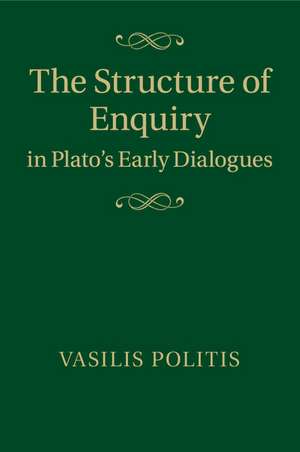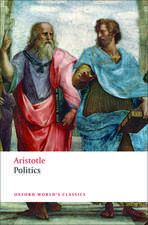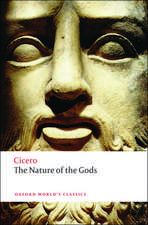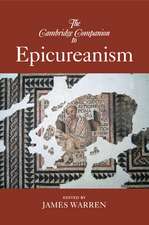The Structure of Enquiry in Plato's Early Dialogues
Autor Vasilis Politisen Limba Engleză Paperback – 14 mar 2018
| Toate formatele și edițiile | Preț | Express |
|---|---|---|
| Paperback (1) | 283.79 lei 6-8 săpt. | |
| Cambridge University Press – 14 mar 2018 | 283.79 lei 6-8 săpt. | |
| Hardback (1) | 694.38 lei 6-8 săpt. | |
| Cambridge University Press – 27 mai 2015 | 694.38 lei 6-8 săpt. |
Preț: 283.79 lei
Nou
Puncte Express: 426
Preț estimativ în valută:
54.31€ • 56.49$ • 45.45£
54.31€ • 56.49$ • 45.45£
Carte tipărită la comandă
Livrare economică 15-29 martie
Preluare comenzi: 021 569.72.76
Specificații
ISBN-13: 9781107689961
ISBN-10: 1107689961
Pagini: 265
Ilustrații: 2 b/w illus.
Dimensiuni: 153 x 230 x 15 mm
Greutate: 0.36 kg
Editura: Cambridge University Press
Colecția Cambridge University Press
Locul publicării:New York, United States
ISBN-10: 1107689961
Pagini: 265
Ilustrații: 2 b/w illus.
Dimensiuni: 153 x 230 x 15 mm
Greutate: 0.36 kg
Editura: Cambridge University Press
Colecția Cambridge University Press
Locul publicării:New York, United States
Cuprins
Introduction; Part I. The Issue of the Justification of Plato's Essentialism: 1. The raising of the ti esti question; 2. How to answer the ti esti question; 3. The thesis of the priority of definition; Part II. The Role of Aporia and the Root of Plato's Essentialism: 4. What are Plato's early dialogues about?; 5. Whether-or-not questions and agonistic argument; 6. Whether-or-not questions and the articulation of aporiai; 7. Aporia-based enquiry aiming at knowledge; 8. What is behind the ti esti question?; Bibliography; General index; Index of passages cited.
Descriere
Offers an alternative interpretation and defends a radically new view of Plato's method of argument in the early dialogues.


















